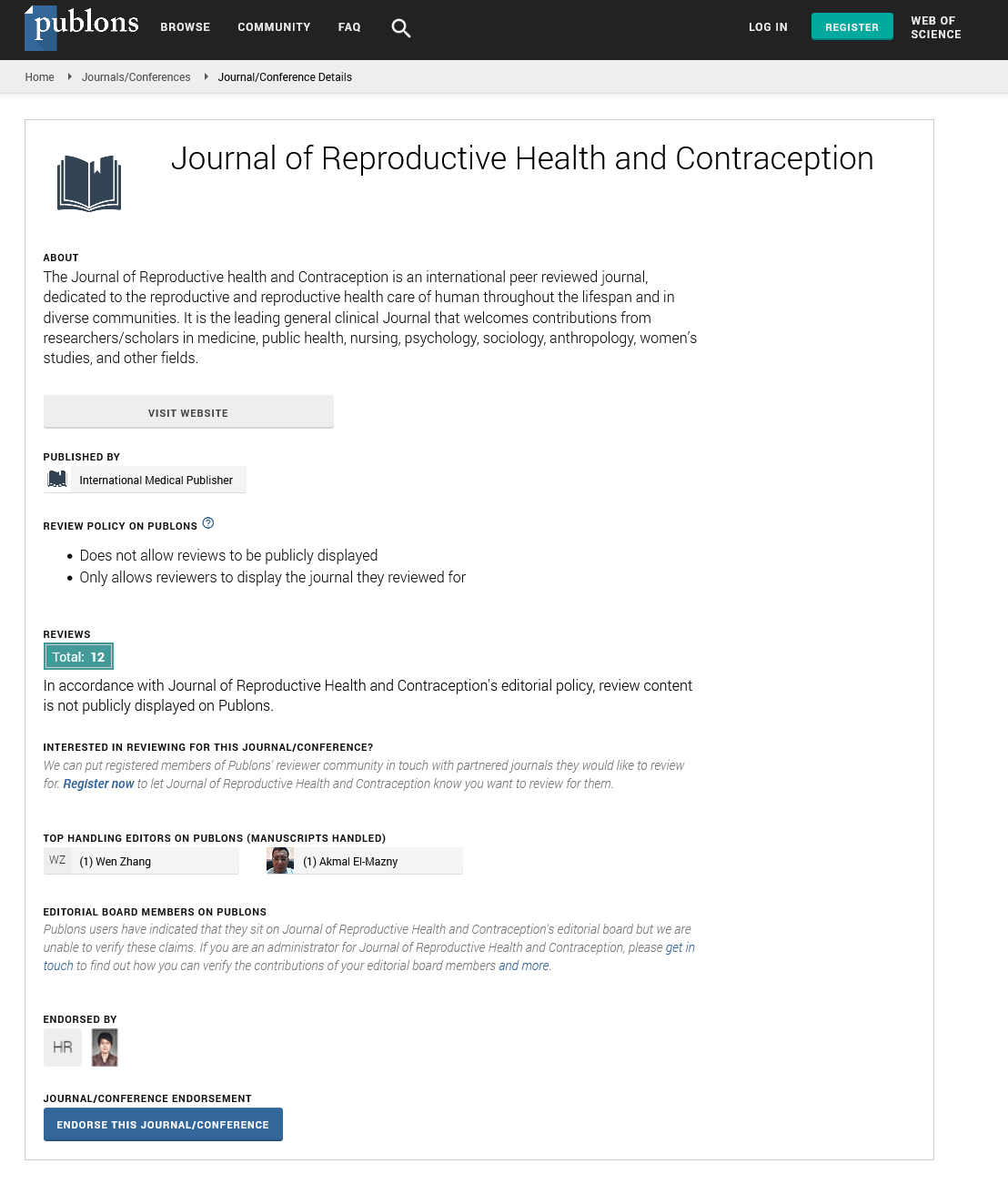ISSN : 2471-9749
Journal of Reproductive Health and Contraception
Gender differentiated attitude towards caesarean section: case of Somali refugees living in Dadaab
International Congress on Midwifery and Maternal health - May Webinar
May 19-20, 2021 | Webinar
Priscilla Ndegwa
Kenyatta University, Kenya
ScientificTracks Abstracts: J Contracept Stud
Abstract
Statement of the problem: Caesarean section (CS) is the most commonly performed obstetrical surgery for life-saving and prevention of delivery complications. The World Health Organization (WHO) recommends a Caesarean section rate of between 10 and 15% as an acceptable level. However, studies have suggested that African women have an aversion for CS preferring vaginal delivery to caesarean section even when there is need to address basic obstetric complications; they perceive CS as being dangerous to the mother and baby.The inadequate use of CS in African countries has been identified as a key factor in the continuing high rates of maternal and perinatal morbidity in the region. In light of non-acceptance of CS among women in many developing countries, this study sought to explore gendered differentiated attitude towards CS among Somali Refugees who seek the services of Traditional birth attendants (TBA) in Dadaab. Methodology: A qualitative case research design was employed- Ten Traditional Birth Attendants, 3 pregnant women, 2 men and 2 refugee safe mothers were selected through Purposive sampling. Data was collected through in-depth interviews and personal observations. Findings: The study found that both men and women were reserved about CS expressing fear of death. Women avoided CS due to fear of facing rejection from their husbands, psychological and emotional trauma of being stigmatized by the community; men felt that their conjugal rights were restricted if their women went through CS. They also indicated that TBAS are fellow women who help mothers to deliver at home, while in hospitals CS is done by men which is against the Somali culture. Conclusion and significance: These findings indicate that there are many perceptions about CS among refugee community and thus need for programs to increase community understanding of CS as a method of delivery. The findings may also be a valuable process indicator for identifying the gaps in obstetric care that can be used for advocating improvements for healthcare.
Biography
Priscilla Ndegwa is a faculty member in the school of business at Kenyatta University. She holds a PhD and Masters in human resource management and a Bachelor in education She is currently the coordinator of Kenyatta University Dadaab Centre (formally Centre for refugees’ studies and empowerment). For close to five years she has been working with UNHR and its agencies and other humanitarian players in the implementation of refugees’ educational programmers at both Dadaab and Kakuma. Her hands on experience working with refugees communities expose her to the challenges facing them and critically the girl child who become nursing mother at quite an early age. With her experience she will be instrumental in the implementation process of this project.
Google Scholar citation report
Citations : 201
Journal of Reproductive Health and Contraception received 201 citations as per Google Scholar report
Journal of Reproductive Health and Contraception peer review process verified at publons
Abstracted/Indexed in
- Google Scholar
- China National Knowledge Infrastructure (CNKI)
- WorldCat
- Publons
Open Access Journals
- Aquaculture & Veterinary Science
- Chemistry & Chemical Sciences
- Clinical Sciences
- Engineering
- General Science
- Genetics & Molecular Biology
- Health Care & Nursing
- Immunology & Microbiology
- Materials Science
- Mathematics & Physics
- Medical Sciences
- Neurology & Psychiatry
- Oncology & Cancer Science
- Pharmaceutical Sciences
